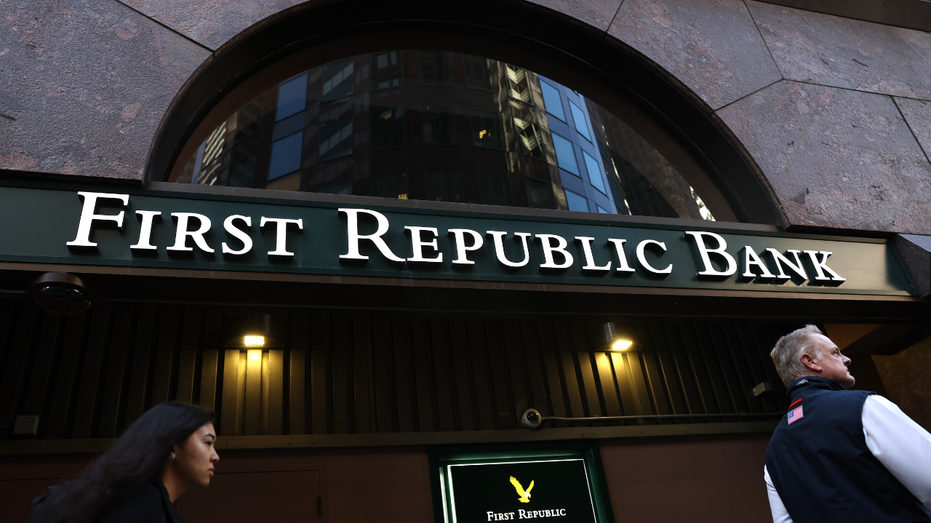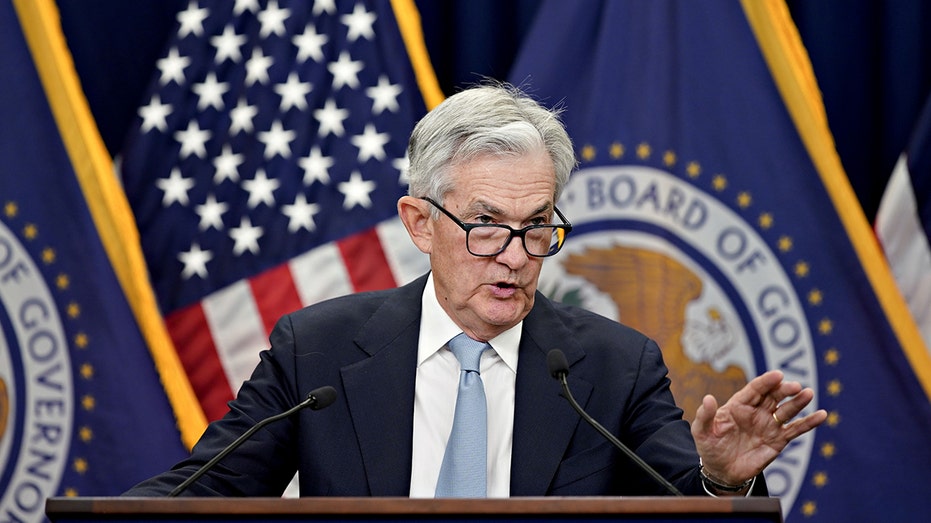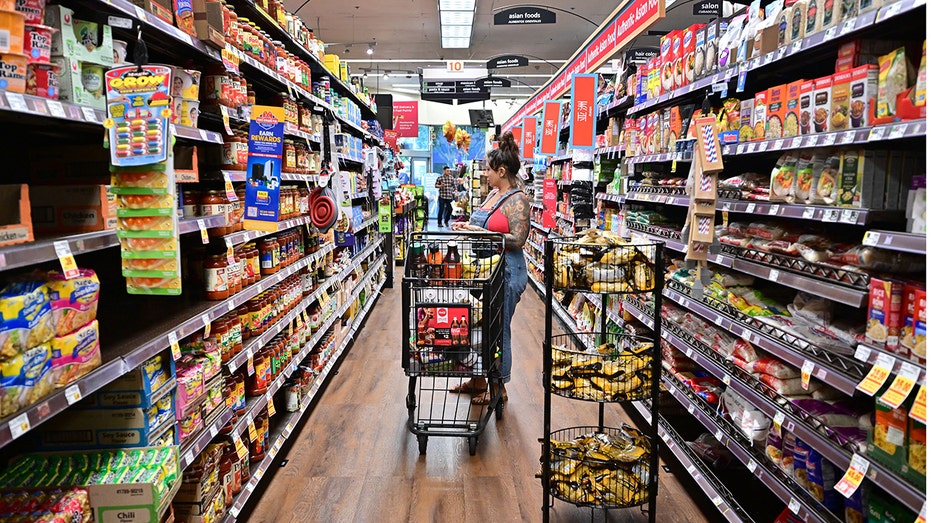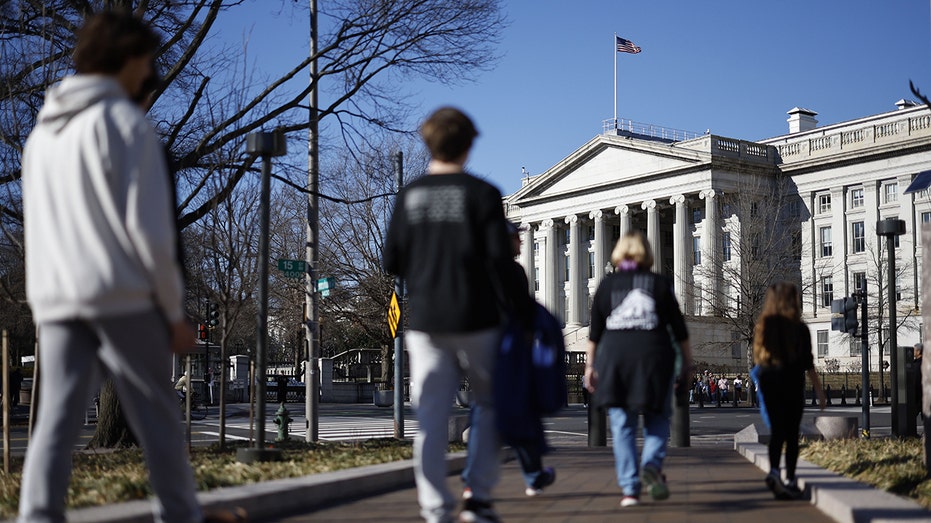First Republic collapse adds to credit crunch woes for Americans
First Republic failure raises risk of 'credit crunch' for US households
Banking crisis 'not going to shut down the American economy': Kevin O'Leary
'Shark Tank' star and O'Leary Ventures Chairman Kevin O'Leary gives his outlook on the banking crisis and U.S. energy landscape.
The implosion of a third U.S. bank this week threatens to worsen a credit crunch for American households and businesses, further taking a toll on economic growth that is already slowing.
Lending standards have already become drastically more restrictive following the collapse of Silicon Valley Bank and Signature Bank in March.
Federal Reserve data released in mid-April shows that commercial bank lending plummeted by nearly $105 billion in the final two weeks of March, the steepest decline in lending on record.
"The data suggest a credit crunch has started," Morgan Stanley analyst Mike Wilson said during a recent episode of the firm's "Thoughts on the Market" podcast.
During a credit crunch, banks significantly raise their lending standards, making it difficult to acquire a loan. Borrowers may have to agree to more stringent terms like high interest rates as banks try to reduce the financial risk on their end. Fewer loans, in turn, would lead to less big-ticket spending by consumers and businesses.
JEROME POWELL'S FAVORITE BOND MARKET GAUGE FLASHES RECESSION WARNING SIGN

Pedestrians walk by a First Republic bank on April 26, 2023 in San Francisco, California. (Photo by Justin Sullivan/Getty Images / Getty Images)
Although JPMorgan Chase secured a deal on Monday to purchase the embattled First Republic in a bid to soothe market jitters over volatility in the financial sector, economists remain worried about tighter lending conditions.
"Investors and policymakers should anticipate that as banks tighten lending standards and pull back on the provision of credit the current pace of growth in the economy will slow further as small- and medium-sized firms that depend upon local and regional bank lending further reduce productivity-enhancing investment in software, equipment and intellectual property and surely reduce hiring," said Joe Brusuelas, chief economist at RSM.
While that could help the Federal Reserve in its fight to tamp down stubbornly high inflation, it also raises the risk of a recession this year.
Gregory Daco, chief economist at the consulting firm EY-Parthenon, likewise said he thinks tighter credit will constrain "business investment, employment growth and consumer spending in the coming months."
HOW THE BANKING CRISIS COULD HAMMER SMALL BUSINESSES

Jerome Powell, chairman of the U.S. Federal Reserve, speaks during at a news conference in Washington, D.C., Wednesday, March 22, 2023. (Al Drago/Bloomberg via Getty Images / Getty Images)
YELLEN SAYS US WILL TAKE MORE ACTION TO PROTECT SMALLER BANKS IF NEEDED
"The odds of a recession have risen due to heightened financial market volatility, tightening credit conditions and economic uncertainty," Daco said. "While labor market conditions still look relatively resilient, an abrupt shift in sentiment along with a rapid tightening of financial conditions could push the economy into a recession with businesses and consumers retrenching."
Fed Chairman Jerome Powell acknowledged during the Fed's two-day meeting in March that upheaval within the financial sector could tighten credit for American households. He suggested that stricter lending standards could have a similar effect on inflation that a rate increase can.
"Such a tightening in financial conditions would work in the same direction as rate tightening," Powell said. "You can think of it as being the equivalent of a rate hike or perhaps more than that."

A woman shops for groceries at a supermarket in Monterey Park, California on Oct. 19, 2022. ((Photo by FREDERIC J. BROWN/AFP via Getty Images) / Getty Images)
His comments came shortly after policymakers delivered another quarter-percentage point rate hike, lifting the benchmark funds rate to a range of 4.75% to 5%, the highest since 2007. It marked the ninth consecutive rate increase aimed at combating high inflation.
Fed officials are in the midst of the most aggressive tightening campaign since the 1980s as they try to crush inflation still running about three times higher than the pre-pandemic average.
FUND MANAGERS WORRY SYSTEMIC CREDIT CRUNCH COULD CRASH US MARKETS
But fears over a broader financial crisis complicated the Fed's efforts, because the rapid rise in interest rates played a direct role in the failure of Silicon Valley Bank. Increasing interest rates threatens to exacerbate instability within the financial system. Powell said it is too soon to say how banking sector stress will affect the broader economy.

Pedestrians near the U.S. Treasury building in Washington, D.C., Dec. 30, 2022. (Ting Shen/Bloomberg via Getty Images / Getty Images)
"Financial conditions seem to have tightened and probably by more than the traditional indexes say," he said. "The question for us, though, is how significant will that be – what will be the extent of it, and what will be the duration of it?
CLICK HERE TO READ MORE ON FOX BUSINESS
"We’ll be looking to see how serious is this and does it look like it’s going to be sustained. And, if it is, it could easily have a significant macroeconomic effect, and we would factor that into our policy decisions."
Policymakers are widely expected to approve a 10th straight interest-rate hike at the conclusion of their two-day meeting on Wednesday and hint at a coming pause in increases.





















